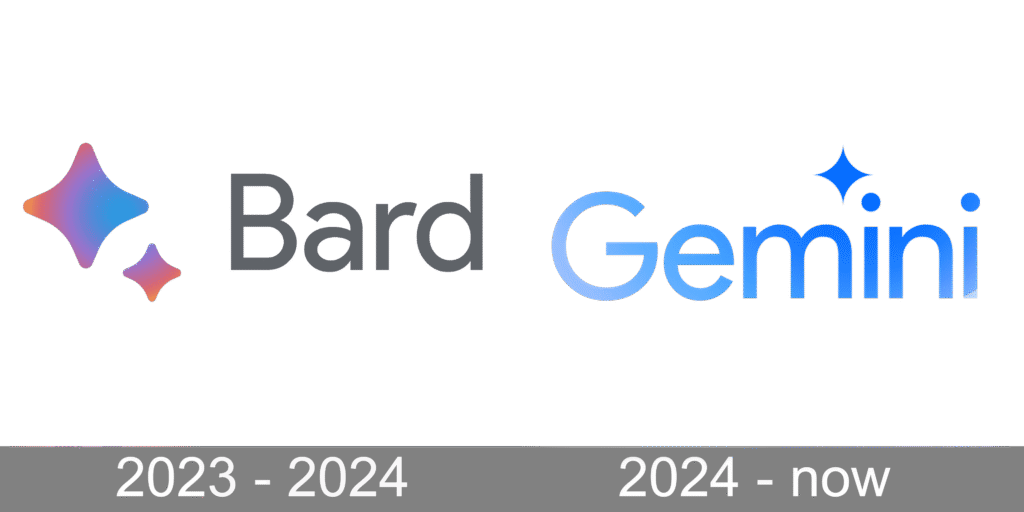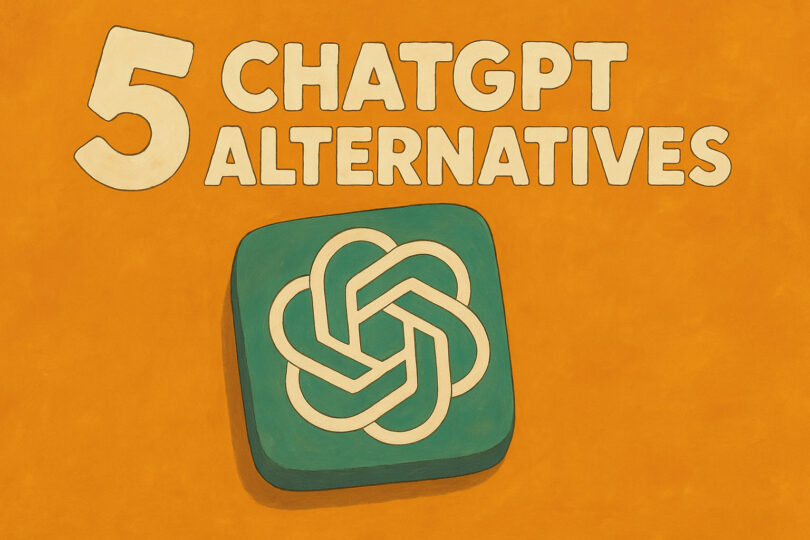In a world where AI is reshaping how we work, communicate, and create, finding the right language model can be the difference between average output and extraordinary results. Whether you’re a developer, content creator, or business leader, choosing the best ChatGPT alternative tailored to your needs is more crucial than ever.
This article provides an in-depth comparison of the top 5 ChatGPT alternatives , helping you understand their strengths, weaknesses, use cases, and how they stack up against each other. By the end of this guide, you’ll have a clear picture of which AI model aligns with your goals — whether it’s for writing, coding, research, or customer engagement.
We’ll explore:
- Why you might need a ChatGPT alternative
- In-depth reviews of each AI platform
- Pros and cons in easy-to-read tables
- Real-world applications and user experiences
- SEO-friendly insights to help you make informed decisions
Let’s dive in!
Why Consider ChatGPT Alternatives?
While OpenAI’s ChatGPT has dominated headlines since its launch, it’s not always the best fit for every scenario. Some users face limitations such as:
- Cost constraints (especially for enterprise-level usage)
- Regional restrictions or data privacy concerns
- Specific feature requirements like multilingual support, code generation, or image analysis
- Customization capabilities for integration into existing workflows
As the AI landscape evolves, several powerful ChatGPT alternatives have emerged, offering competitive performance, unique functionalities, and better pricing models.
Criteria for Evaluating ChatGPT Alternatives
To ensure our list includes only the most capable tools, we evaluated platforms based on:
- Performance & Accuracy – How well does the model understand and respond to queries?
- Use Cases – Is it suitable for content creation, coding, research, or customer service?
- Language Support – Does it handle multiple languages effectively?
- Integration Options – Can it be embedded into apps, websites, or APIs?
- Pricing Model – Free vs. paid tiers, cost per token, enterprise plans
- Privacy & Security – Data handling policies and compliance standards
- User Experience – Interface design, ease of use, and customization options
Now let’s take a look at the top 5 ChatGPT alternatives that stood out.
1. Alibaba Cloud Qwen

Developed by Alibaba Cloud, Qwen is one of the leading contenders among large language models. It offers robust multilingual support and excels in tasks ranging from content generation to code writing.
Key Features
- Supports over 100 languages , including Chinese, English, French, Spanish, and Arabic
- Strong code-writing capabilities with specialized models like Qwen-Coder
- Advanced reasoning and logical deduction abilities
- Available via API and web interface
- Enterprise-grade security and compliance
Use Cases
- Multinational corporations needing cross-language communication
- Developers looking for code assistance in Python, JavaScript, etc.
- Content creators working in non-English markets
Pros & Cons
| ✅ Pros | ❌ Cons |
|---|---|
| Excellent multilingual support | Less known in Western markets |
| High-quality code generation | UI may feel less polished compared to competitors |
| Scalable for enterprise use | Limited free tier |
Pricing
- Free Tier : Available with limited tokens/month
- Pay-as-you-go : Starts at $0.0005 per 1K tokens
- Enterprise Plans : Custom pricing available
🔗 Try Qwen
2. DeepSeek

DeepSeek is a fast-rising player in the AI space, developed by a team of seasoned researchers and engineers. Known for its impressive performance and affordability, DeepSeek aims to deliver high-quality AI solutions without breaking the bank.
Key Features
- Competitive performance across general NLP tasks
- Cost-effective pricing model
- High context length support (up to 32k tokens)
- Seamless API integration
- Strong focus on commercial usability
Use Cases
- Startups and small businesses seeking affordable AI tools
- Businesses requiring high-volume text processing
- Developers integrating AI into chatbots or internal tools
Pros & Cons
| ✅ Pros | ❌ Cons |
|---|---|
| Affordable pricing | Still building brand recognition |
| Long context support | Smaller community compared to giants |
| Fast inference speed | Fewer integrations and plugins |
Pricing
- Free Tier : Not currently available
- Commercial Plans : Starts at $0.001 per 1K tokens
- Enterprise Plans : Custom quotes based on usage
3. Claude.ai by Anthropic

Claude.ai, developed by Anthropic , is known for its advanced reasoning, visual analysis, and conversational abilities. With versions like Claude 3 , it competes directly with GPT-4 in many areas.
Key Features
- Exceptional reasoning and problem-solving capabilities
- Visual input support (image analysis and interpretation)
- Emphasis on ethical AI and safety mechanisms
- Easy-to-use web interface and API access
- Strong performance in complex, multi-step tasks
Use Cases
- Academic research and data analysis
- Legal document review
- Customer service automation with visual inputs
- Educational tools and tutoring systems
Pros & Cons
| ✅ Pros | ❌ Cons |
|---|---|
| Superior reasoning skills | Higher cost compared to some alternatives |
| Visual input capability | No completely free version |
| Ethical AI focus | Slower adoption in non-English regions |
Pricing
- Claude Instant : ~$0.0008 per 1K tokens
- Claude 3 Opus : ~$0.015 per 1K tokens
- Claude 3 Sonnet : ~$0.003 per 1K tokens
- Claude 3 Haiku : ~$0.00025 per 1K tokens
4. Microsoft Copilot (formerly Bing Chat)

Microsoft’s Copilot integrates seamlessly with Windows, Office, and Edge browsers, making it a powerful tool for productivity and everyday use.
Powered by GPT-4 under the hood, Copilot brings advanced AI capabilities to millions of users through familiar interfaces.
Key Features
- Integration with Microsoft 365 Suite
- Access to real-time information via the web
- Enhanced search and summarization capabilities
- Voice and image interaction support
- Designed for both personal and enterprise use
Use Cases
- Enhancing productivity in Word, Excel, PowerPoint
- Email drafting and meeting summaries
- Web browsing and research assistance
- Personal assistant functions
Pros & Cons
| ✅ Pros | ❌ Cons |
|---|---|
| Deep Microsoft ecosystem integration | Performance varies across platforms |
| Real-time web search | Less customizable for developers |
| Voice and image input support | Limited standalone functionality |
Pricing
- Free Tier : Available via Edge browser and Copilot app
- Copilot Pro : $20/month for premium features (early access)
5. Google Gemini (formerly Bard)

Google’s Gemini (formerly Bard) leverages the power of Google’s vast data infrastructure and search capabilities. As part of Google’s broader AI strategy, Gemini is designed to be deeply integrated into Google Workspace and Android devices.
Key Features
- Built-in Google Search integration
- Multi-modal capabilities (text, images, voice)
- Continuous learning and updates
- Integration with Gmail, Docs, and Meet
- Strong emphasis on factual accuracy and relevance
Use Cases
- Everyday task automation and email assistance
- Research and fact-checking
- Educational content creation
- Business productivity within Google Workspace
Pros & Cons
| ✅ Pros | ❌ Cons |
|---|---|
| Real-time internet knowledge | Occasional hallucinations reported |
| Tight integration with Google services | Lacks advanced coding capabilities |
| Multi-modal input support | Interface still evolving |
Pricing
- Free Tier : Available to all users
- Gemini Ultra : Part of Google One Premium plan ($19.99/month for 2TB storage + AI features)
Comparison Table: Top 5 ChatGPT Alternatives
| Feature | Qwen | DeepSeek | Claude.ai | Microsoft Copilot | Google Gemini |
|---|---|---|---|---|---|
| Multilingual Support | ✅ Excellent | ✅ Good | ✅ Good | ✅ Moderate | ✅ Very Good |
| Code Writing | ✅ Strong | ✅ Strong | ✅ Moderate | ✅ Moderate | ❌ Weak |
| Visual Input Support | ❌ | ❌ | ✅ Yes | ✅ Yes | ✅ Yes |
| Enterprise Readiness | ✅ | ✅ | ✅ | ✅ | ✅ |
| Real-Time Web Search | ❌ | ❌ | ❌ | ✅ Yes | ✅ Yes |
| Free Tier Available | ✅ | ❌ | ❌ | ✅ | ✅ |
| API Availability | ✅ | ✅ | ✅ | ✅ | ✅ |
| Ethical AI Focus | ❌ | ❌ | ✅ | ✅ | ✅ |
| Ease of Use | ⭐⭐⭐ | ⭐⭐⭐⭐ | ⭐⭐⭐⭐⭐ | ⭐⭐⭐⭐ | ⭐⭐⭐⭐ |
Choosing the Right ChatGPT Alternative for Your Needs
For Multilingual Content Creators: Alibaba Qwen
If your audience spans across languages and regions, Qwen’s multilingual prowess makes it the ideal choice. Its ability to generate high-quality content in dozens of languages sets it apart from most competitors.
For Budget-Conscious Users: DeepSeek
Startups and indie developers will appreciate DeepSeek’s aggressive pricing model and strong performance. While it lacks some advanced features, its affordability makes it a solid option for those on a tight budget.
For Complex Reasoning and Research: Claude.ai
Claude shines when it comes to logic puzzles, legal reasoning, and scientific analysis. If your workflow involves deep thinking and accurate deductions, Claude is your go-to tool.
For Microsoft Ecosystem Users: Microsoft Copilot
If you’re already invested in Microsoft products like Word, Outlook, or Teams, Copilot enhances your productivity without any additional setup. Plus, its web search capabilities keep you informed in real time.
For Everyday Productivity and Fact-Checking: Google Gemini
Gemini is perfect for casual users who want to streamline their daily tasks, draft emails, or get quick answers. Its seamless integration with Google services and real-time search make it indispensable for Android and Chromebook users.
Final Thoughts: Which ChatGPT Alternative is Right for You?
There is no one-size-fits-all answer when it comes to choosing the best ChatGPT alternative . Each tool has its own niche, strengths, and ideal use cases. Here’s a quick recap:
- Best Overall for General Use : Claude.ai
- Best for Code Generation : Qwen or DeepSeek
- Best for Enterprise : Microsoft Copilot or Qwen
- Most Affordable : DeepSeek
- Best for Google Users : Gemini
Before making a decision, consider your specific needs, budget, and technical requirements. Most platforms offer trial periods or free tiers, so take advantage of them to test the waters before committing.
Frequently Asked Questions (FAQs)
Q: What is the best ChatGPT alternative for coding?
A: Qwen and DeepSeek are highly recommended for coding due to their strong language understanding and code-generation capabilities.
Q: Are there any free ChatGPT alternatives?
A: Yes! Microsoft Copilot and Google Gemini offer free tiers with generous features. Qwen also has a limited free plan.
Q: Which ChatGPT alternative is best for enterprise use?
A: Qwen , Claude.ai , and Microsoft Copilot are all enterprise-ready with strong security, compliance, and API support.
Q: Do these ChatGPT alternatives support multiple languages?
A: Yes, Qwen leads in multilingual support, followed closely by Claude.ai and Google Gemini .
Q: Can I integrate these models into my app or website?
A: Absolutely. All five platforms provide API access for developers to embed AI capabilities into their applications.
Conclusion
The AI revolution shows no signs of slowing down, and having the right tools can give you a significant edge in today’s competitive digital landscape. Whether you’re looking for superior reasoning, multilingual support, enterprise scalability, or budget-friendly options, the top 5 ChatGPT alternatives reviewed here offer something for everyone.
By evaluating your needs and comparing the features of each platform, you can choose the AI assistant that best fits your workflow, goals, and budget.







Leave a Comment